

This is one of those times when I want you to jump right to the bottom of the page.
Google Drive was at work with three authors from three corners of the US. The three authors had one hour to write and collaborate over a short story. They succeeded. That’s real time partnership at its finest.
Sharing with collaborative cloud platforms like Google Drive isn’t novel anymore. Giants of the tech world are fighting the wars over enterprises and consumers. The dust isn’t going to settle anytime soon. It’s good news for us consumers as we improve our workday with shared files, folders, and teams.
So, I have to ask you – is it still super easy to share files with Google Drive? Or are you still getting the hang of it? Either way, these ten tips should help you to manage shared files just a bit better from today.
It’s all about creating the right kind of share permissions and the level of sharing. You can share any file or folder on Google Drive. The two-minute video sums up the process.
As the owner, you can give others complete ownership of a file, or some level of viewing and editing access.
Here’s a chart that compares the access for a viewer, commenter, editor, or owner:
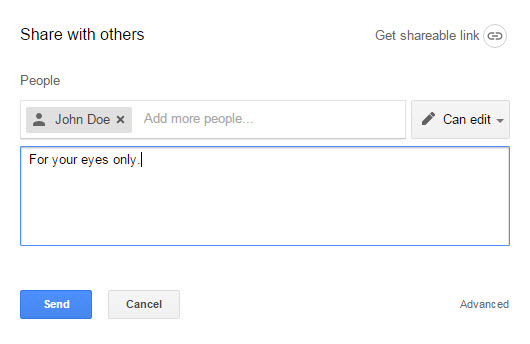
You can disallow downloading, printing, and copying of shared files. The advanced information rights management feature removes these options from the menu of the viewer. This is another layer of control over your documents.
Open Google Drive. Select the shared file and click the Share icon on the top right.
On the Share with others dialog box, add the name of the collaborator and click on the Advanced option located on the bottom right.
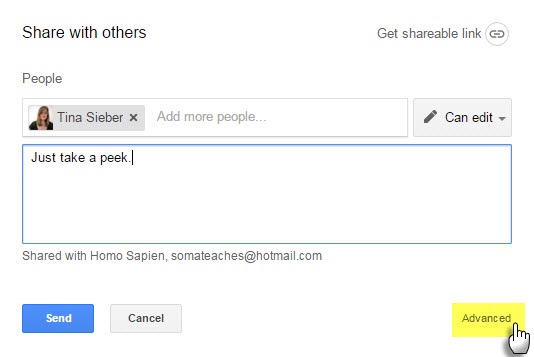
Select the Disable options to download, print, and copy for commenters and viewers box. Click Save changes.
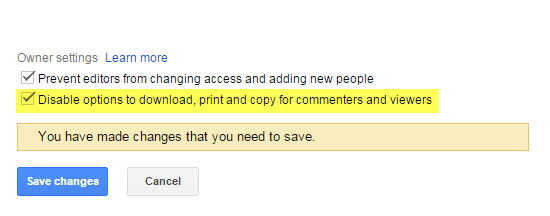
Viewers will see a “Export options disabled” notification at the top of the File and Edit menus for the specific documents, spreadsheets, and presentations.
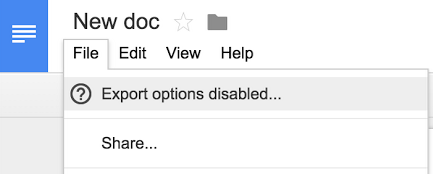
Do note that those with “edit” permissions will still be able to download, print, and copy your file, even if this setting is on.
Your friends and colleagues don’t need a Google account to view a Google Drive folder or document. This is one of the little known abilities of Google Drive. You can send an invite to their email address. Or use a shareable link.

Choose between Can view or Can edit or Can Comment. Click the Save button.
You can go into the Advanced sharing settings and choose other sharing options. The person who receives the invite does not have to register and log-in with a Google account to view on the file. But, they will need a Google account to edit a file or to comment.
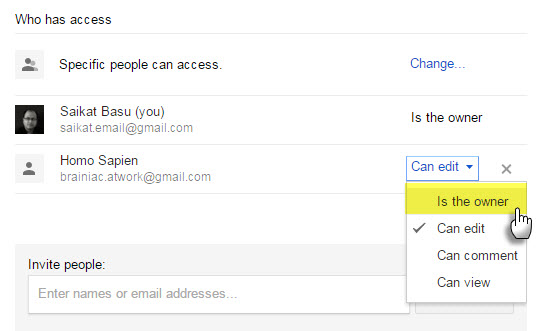
Sharing via a link is a security risk for sensitive documents because anyone with the link can access the file.
Google Drive lets you download the entire contents of a shared folder as a ZIP archive. This is useful for saving local copies of shared documents. The folder structure with any sub-folders is retained in the archive.
Go to Shared with me On your Google Drive. Right-click on the folder and choose Download.
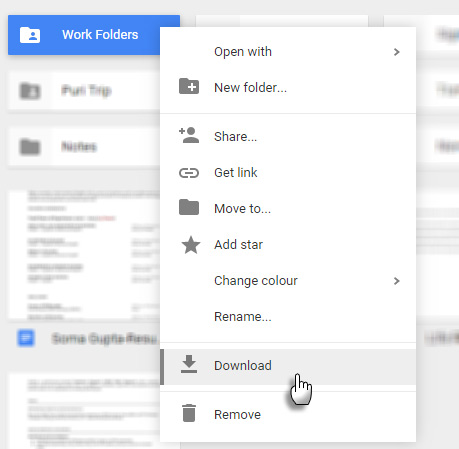
You can also use the triple dots icon in the toolbar to download the folder.

If you download a Google Doc, Sheet, or Slide, it will download as an Office document. All other files will download in their native format.
There are many reasons for transferring the ownership of documents to someone else. Maybe someone else is taking over a project. Maybe someone fired you. On a better note, you are going on a vacation and just want to hand over responsibility of the shared documents. The process to digitally “hand over” Google Drive documents and folders is easy.

Open Google Drive. Select the shared folder or file in Docs, Sheets, or Slides and click the Share icon on the top right. When the presumptive owner does not have share access…invite by typing the email address in the “Invite people” field. Then Save.
Click Advanced in the bottom-right corner of the sharing box. Click the drop-down menu next to the name of the person you want to own the file or folder. Select Is owner. Click Done.
Your role is swapped from an owner to an editor after you transfer ownership.
Do
When you try to access a file via a shared link, you might see a message that says “You need permission.” Sometimes, owners share a link before they have set the permissions. Also, you might want to open the file with an alternate Google ID. It is easy to request access with a single click. On the desktop: On Android: With the Drive for Android app you can request access with a single tap when the “Unable to access document” message pops up. Requesting permission will send an email to the owner from inside the app. File owners immediately get a notification on Android and iOS. The mobile app has been updated with this feature recently. Sharing a document with 10 members is easy. Sharing it with 50 calls for more planning. Managing shared files also means tracking which collaborator is working on which document. Go to View Details (Click the “I” icon on the toolbar). Browse the Activity tab to quickly see which files you have shared, recently. Click on Shared with Me in the left menu of Google Drive. You’ll get a list of all the documents you share access to. Use the Power of Google Search Filters. The productivity benefits won’t come as a surprise for those acquainted with Gmail filters. Use the search box at the top of Google Drive. Google Drive’s search also searches the body of the document. You can search the first 100 pages of any text documents or text-based PDFs that you’ve uploaded. You can also search for text found on the first 10 pages of any image PDFs. Instead of digging through folders use this powerful feature to quickly get to a file. While in Google Drive press the forward slash key to place your cursor right in the search box. Click the little dropdown arrow on the search box to reveal the basic search filters. Learning a few manual parameters can save you time. For example: To find documents you shared with someone use to:[email protected]. Google Help has the complete list. With email contact groups you don’t have to set individual document permissions for your team members. Log into Google Contacts. On the left sidebar, click New Group. Give it a descriptive name according to the team project. Or anything else which makes them easy to remember. You can name groups by permissions to make them easy to remember. For example: [email protected] or [email protected]. Populate the New Group with the email addresses of the team members. Use these specific contact groups in the file or folder sharing settings. Google maintains a version history, but there is no way to see how many times a shared document has been viewed. I got the answer to this question from a Stack Exchange discussion. Submit your document link to the http://goo.gl URL shortening service and share that URL only. This service provides information on how many times that link was clicked, which is about as close as you can currently get to knowing how many times your document was accessed. This is useful in cases where you might want to share a document publicly and check the response. Note that public docs and files show up in search results. Some ideas for sharing publicly: Tip: You can use a simple Google Site Search to search for public documents. E.g. keyword site:drive.google.com Slack is the new workplace or the office’s digital water cooler. If you aren’t working with Slack yet, it’s time to introduce it to your team. There are many ways to make your favorite services work with Slack. Google Drive integration is among the popular ones. Slack lets you import Google Drive files and share them via Slack. All imported Google Drive files are also indexed by Slack for easy searching and reference. The files are not stored on Slack – they continue to remain in your Google Drive folders. Slack acts as a conduit. A small example: Paste a link to a Google document in the Slack chatroom. Slack displays a snippet of content from the file below the link once it is integrated. This is more helpful than just sharing blind links. Slack Help Center shows how you can connect your Google Drive to Slack in two easy ways. Google Drive vs Microsoft Word might be a daily bout of two office suites, but the two powerhouses are finally playing nice. You can now open Word, Excel, and PowerPoint files stored on the Drive, work on them in Microsoft Office and share them back via Google drive. It’s all thanks to a handy plug-in that’s imaginatively named as — Google Drive plug-in for Microsoft Office. The plug-in works with Microsoft Office 2007, 2010, 2013, and 2016. Install the add-on and give it permission to access your Google Drive folders. The add-on appears as an extra tab on the Ribbon and as a new location in the Save screen. Office document stored on the Drive are also version controlled. You can track previous versions of an Office file, or go back to an older version. When you want to work on a Google document, it opens in the appropriate Google Drive program in a separate browser window. You can’t go it alone in the 21st Century. There are a number of benefits when you collaborate in real-time. There are challenges as well. But reduce the number of hoops to just share a piece of information and good things will happen. The writing project video demonstrates how more can be achieved with less when collaborative synergy happens. Spend some time with the collaborative features of Google Drive. The harmony of teamwork depends on it. Take Google Drive beyond a file storage system with the many tips and tricks that it offers on all platforms. Tell us about the role of Google Drive in your connected world. Do you actively use it to pull each other together around a common project? What is the one tip you would like to share that makes Google Drive management a bit better for us? Or even a complaint that’s holding you back? Image Credit: jigsaw puzzle by Rido via Shutterstock5. How to Request Access to Shared Files?
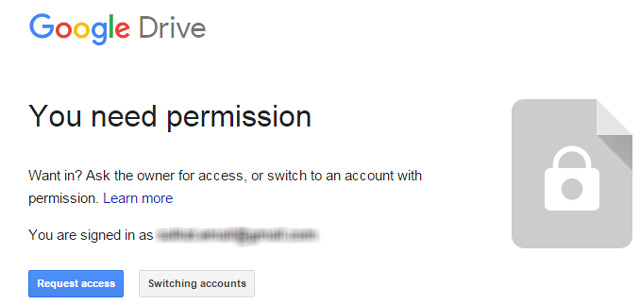
6. Search for a Collaborator
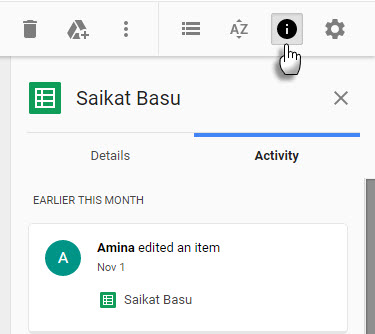
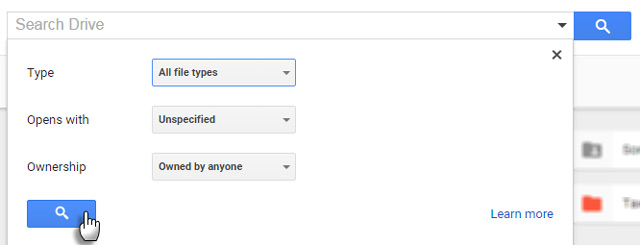
7. Simplify sharing by Creating Contact Groups
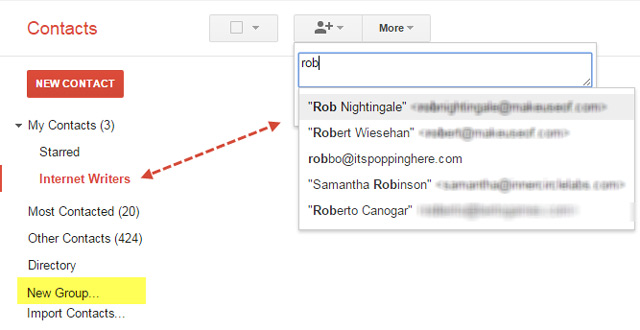
8. See The View Count of a Shared Document
9. Share with Slack

10. Share Google Docs from Microsoft Office
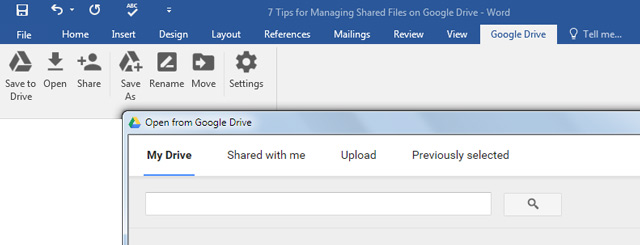
Isn’t Sharing Wonderful!
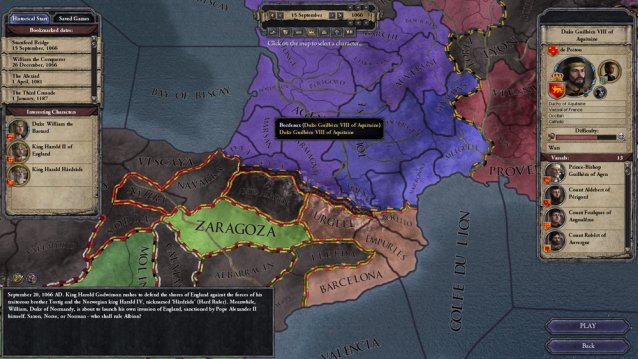
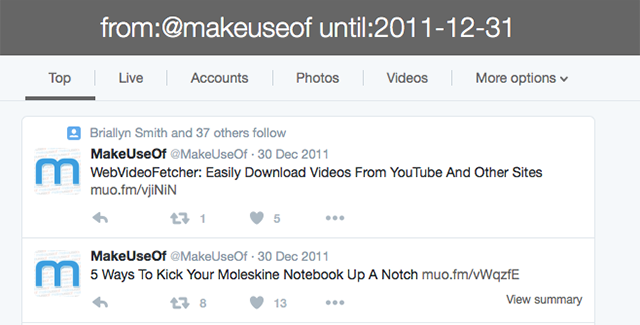


 Trials Fusion Review And Let's Play: Flipping, Tricking, and Raging
Trials Fusion Review And Let's Play: Flipping, Tricking, and Raging Has Sony Lost Its Perspective?
Has Sony Lost Its Perspective? Thief: How to Defeat Primal Erin (Final Boss)
Thief: How to Defeat Primal Erin (Final Boss) Fallout 4: How to Get Rid of Radiation and Rad Damage
Fallout 4: How to Get Rid of Radiation and Rad Damage These Are 29 Rare Weapons In Fallout 4, How To Unlock Them and Stats Revealed
These Are 29 Rare Weapons In Fallout 4, How To Unlock Them and Stats Revealed